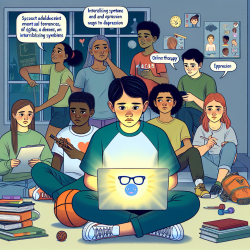Introduction
The global landscape of palliative care is evolving, with a growing emphasis on early intervention rather than waiting until the end-of-life stage. A notable model in this realm is the Educate, Nurture, Advise, Before Life Ends (ENABLE) program, originally developed in the United States. This model has shown significant improvements in quality of life, mood, symptom relief, and survival rates for cancer patients. It also offers benefits for family caregivers. As the demand for palliative care grows worldwide, adapting such models to different cultural contexts becomes crucial. This blog explores the adaptation of the ENABLE model for Turkey and Singapore, highlighting key takeaways for practitioners.
The ENABLE Model: A Brief Overview
The ENABLE model was designed to provide structured palliative care early in the disease trajectory. It focuses on self-care management, skills training, and empowering patients and caregivers to make informed decisions. Initially developed for cancer patients, ENABLE has been adapted for other conditions like heart failure. Its transition to a telehealth format has made it accessible to rural populations, offering a flexible approach that can be culturally tailored.
Adapting ENABLE for Turkey
In Turkey, palliative care is a relatively new discipline, with significant developments occurring over the past decade. The adaptation of ENABLE, known as ENABLE-TR, focuses on tailoring the model to meet the specific needs of Turkish caregivers of older adults with advanced cancer. This involves a culturally sensitive approach that emphasizes face-to-face interactions, educational materials, and a focus on emergency care, nutrition, and supportive community services.
- Primary Care: Family physicians and early diagnosis centers play a crucial role.
- Secondary Care: Focus on cases that cannot be managed at the primary level.
- Tertiary Care: Centers of excellence with a multidisciplinary approach.
Adapting ENABLE for Singapore
Singapore's palliative care services are well-developed, with a focus on education and research. The adaptation of ENABLE involves translating and culturally adapting the model to fit Singapore's family-centric society. This includes semi-structured interviews with healthcare professionals and patients to ensure the content is relevant and culturally appropriate. The adaptation process emphasizes face-to-face sessions and involves a multidisciplinary expert advisory group to refine the intervention.
Key Takeaways for Practitioners
For practitioners looking to improve their skills in palliative care, the ENABLE model offers several insights:
- Cultural Sensitivity: Understanding cultural norms and values is crucial for the successful adaptation of palliative care models.
- Flexibility in Delivery: Telehealth offers a flexible approach that can be tailored to different settings, whether rural or urban.
- Empowerment and Education: Focus on empowering patients and caregivers through education and skills training to improve outcomes.
- Collaboration: Engage with local experts and stakeholders to ensure the model is relevant and effective in the new context.
Conclusion
The ENABLE model's adaptation for Turkey and Singapore demonstrates the importance of cultural sensitivity and flexibility in delivering effective palliative care. By learning from these adaptations, practitioners can enhance their skills and contribute to better outcomes for patients and caregivers. For those interested in further research, the original study provides a comprehensive overview of the ENABLE model's development and adaptation.
To read the original research paper, please follow this link: Translating a US Early Palliative Care Model for Turkey and Singapore.










